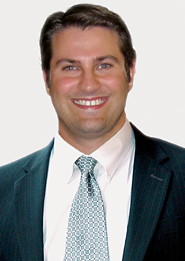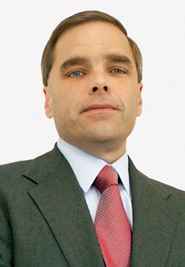Billions of dollars have been flowing into hedge funds in recent months, which could lead to increased trading volumes for the equities trading business, industry watchers say.
A report from TrimTabs Investment Research and BarclayHedge showed an inflow of $15.7 billion into hedge funds during March. That’s the third positive month in a row. The new investments in March account for an increase of about 0.9 percent of hedge fund assets overall.
Hedge fund data typically lags, so numbers are unavailable for April, but according to TrimTabs and BarclayHedge, industry assets in March reached $1.8 trillion, their highest level since October 2008.
Much of the new money is coming from pension funds that are starting to understand they need to put some of their money into alternative investments, said Vincent Deluard, executive vice president of research at TrimTabs.
The new emphasis from pensions will likely lead to increased trading volume, since hedge funds tend to be more active than other investment managers, Deluard said.
"If they had not put it into hedge funds, it would have gone into mutual funds or managed accounts, which tend to trade less than hedge funds, so I think it will probably impact the volume," he said.

There could be a doubling in pension money allocated to hedge funds in coming years, with the average plan setting aside perhaps 10 percent of assets for hedge funds, Deluard added.
Michael Hutner, managing director at ConvergEx’s Eze Castle Software, said he has already seen some increase in trading associated with the new inflows.
"On the hedge fund side, they are typically more active traders, so we are seeing more trading as assets continue to flow in there," he said.
Tim Mahoney, chief executive officer of BIDS Trading, said that while hedge funds do trade more frequently than mutual funds, the difference is not as great as it was five years ago, when hedge funds were leveraged to the hilt. Still, it’s good news that money is going into actively managed funds rather than passive exchange traded funds, he said.
Much of the recent hedge fund inflows have been going into funds specifically likely to make frequent equity trades, according to industry watchers.
Channel Capital Group, which runs industry tracker HedgeFund.net, found that over the first quarter of 2011, net inflows into equity strategy hedge funds added 1.26 percent to the funds’ assets under management.
That increase was not as big as the boosts received by fixed income (4.97 percent) and commodity hedge fund strategies (4.61 percent), though far more assets overall are allocated to equity strategies, according to HedgeFund.net data.
Peter Laurelli, vice president of research at Channel Capital Group, said there has been mediocre growth within equity’s largest strategy, long-short, which increased only 0.77 percent during the first quarter. However, event-driven equity funds increased 3.55 percent over the quarter, and funds using options strategies grew 4.50 percent.
"As a group, long-short equity strategies tend to be much more correlated to major equity indices than event-driven strategies," Laurelli noted.
Hedge funds focusing on options lost money last year, so some investors seem to be moving money back into that strategy after a disappointing year, but the strategy still remains relatively small, Laurelli said.

Charles Gradante, co-founder of hedge fund consulting firm Hennessee Group, said his firm has been advising clients to put money into equity hedge fund strategies. They are especially recommending funds focused on global equities and emerging markets as a way to take advantage of an expected weakening dollar.
"I think a lot of people are following a similar theme, and that is to play long-short equity managers that are exposed to big-cap international companies that have more than 50 percent of their revenue from overseas, companies outside the U.S. and in particular the emerging markets," Gradante said.
Hennessee is also advising clients to place money with commodity funds that invest through equities rather than futures, to gain exposure to metals, agriculture and oil, he added.



